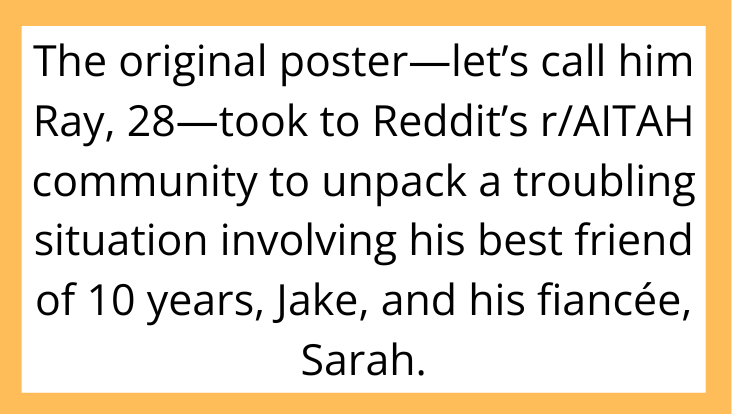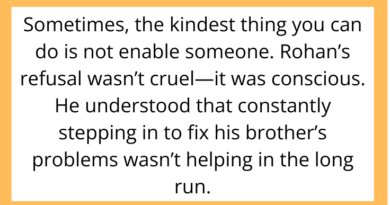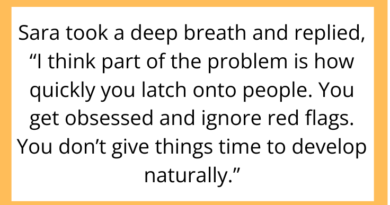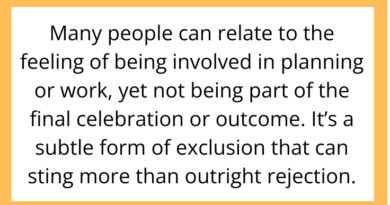AITAH for Kicking Out My Best Friend After He Confessed Feelings to My Fiancée?
Some betrayals hit closer than others—especially when they come from your inner circle. In today’s AITAH-inspired story, we explore loyalty, boundaries, and the explosive fallout when a best friend crosses a major line.
Is protecting your relationship being possessive—or just common sense? Let’s get into it.
The Situation: Best Friend or Hidden Rival?

The original poster—let’s call him Ray, 28—took to Reddit’s r/AITAH community to unpack a troubling situation involving his best friend of 10 years, Jake, and his fiancée, Sarah.
Ray and Sarah had been engaged for six months, happily planning a small wedding and future together. Jake was not only Ray’s best friend, but also his roommate of three years. The three of them shared an apartment, got along well, and even had a running joke about being an “unofficial trio.”
Until that joke turned into a problem.
The Confession That Changed Everything
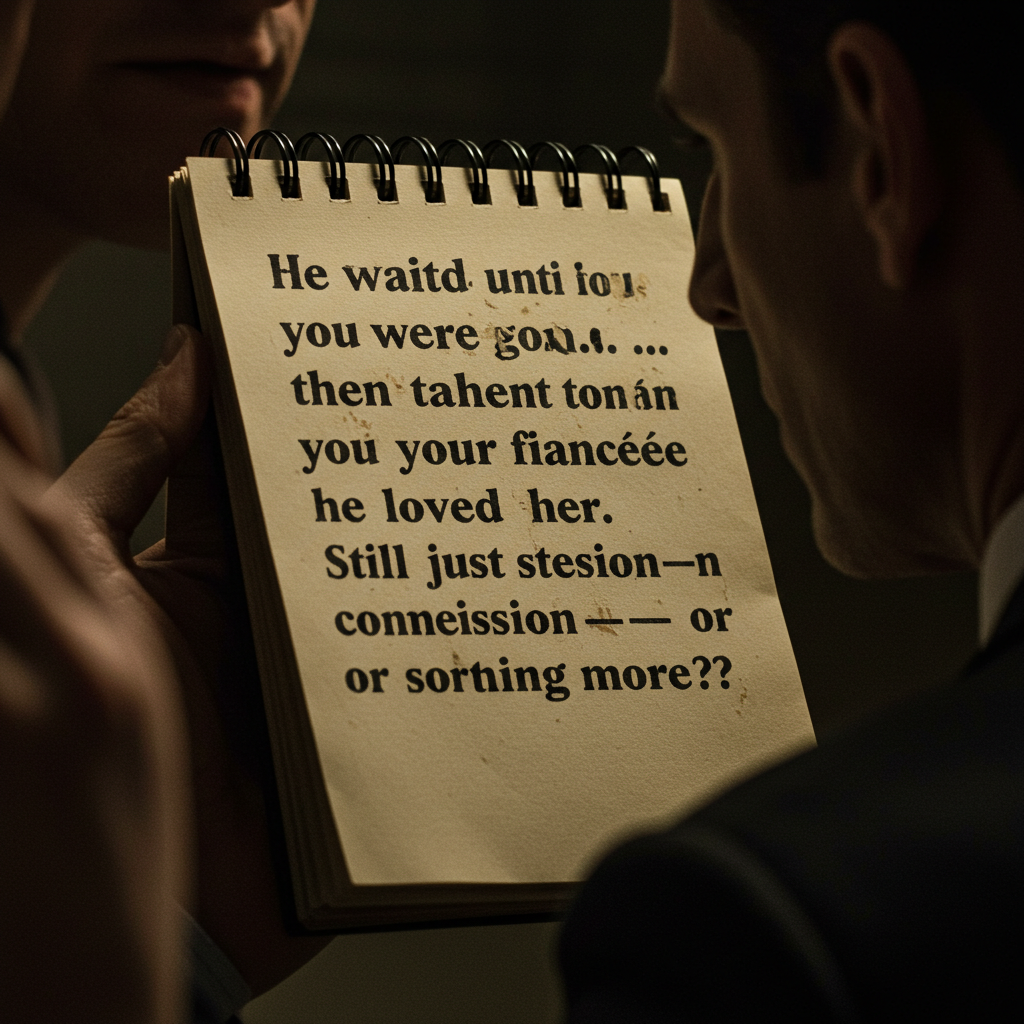
One night, while Ray was out visiting his parents for the weekend, Jake made a move: he told Sarah that he was in love with her and had been “waiting for the right time” to say it.
Sarah was shocked. She immediately told Jake she didn’t feel the same way and texted Ray that night to let him know what had happened.
When Ray returned, he confronted Jake—who admitted to everything but insisted he “couldn’t help how he felt.” He said he didn’t intend to break them up, just needed to “get it off his chest.”
Ray didn’t buy it. He told Jake to pack up and move out within the week.
Jake left—furious—and told their mutual friends that Ray “overreacted” and “abandoned a decade-long friendship over nothing.”
Now Ray is wondering: AITAH for kicking out my best friend over one confession?
Loyalty vs. Love: Where’s the Line?

Team Ray: Boundaries Were Broken
Reddit overwhelmingly sided with Ray on this one. The betrayal wasn’t just emotional—it was a breach of trust in a shared living space.
Jake confessed his feelings not years ago when Sarah was just a crush, but now—while they were engaged, and in private, when Ray wasn’t home. That’s not just a confession. That’s a calculated move.
Boundaries were shattered. And in relationships, trust is everything. A best friend who truly respects you doesn’t put your relationship at risk for his own emotional closure.
Team Jake: Honesty Hurts, But It Isn’t Betrayal
On the other hand, a small minority argued that Jake may have felt trapped by unspoken feelings. “Better he confess and get it out,” said one commenter, “than bottle it up and let it grow toxic.”
Some even suggested Ray could have handled it with more compassion: “He didn’t act on anything. He confessed. That’s it.”
But most agreed—timing and context matter. Saying something “just to be honest” doesn’t make it harmless, especially when it’s done in a way that violates trust.
Why This Story Hit a Nerve

This post exploded on r/AITAH and across social media because it touches on something universal: betrayal from within the circle.
We’re used to drama from exes or strangers. But when it comes from a best friend? That’s another kind of heartbreak.
It also highlights deeper questions:
-
Should emotional honesty always be expressed?
-
Is confessing feelings to someone who’s taken ever appropriate?
-
Does history with a friend excuse bad judgment?
In Ray’s case, Reddit agreed: a decade-long friendship doesn’t give you the right to disrespect someone’s relationship.
What Ray Could Have Done (and Didn’t)

To his credit, Ray didn’t resort to yelling or revenge. He made a firm boundary, protected his partner, and removed someone who posed a threat to their relationship. He also believed Sarah and trusted her fully—which many commenters praised as a green flag.
Had he let Jake stay, the tension would’ve been unbearable—for both him and Sarah.
Roommates, Respect, and Red Flags
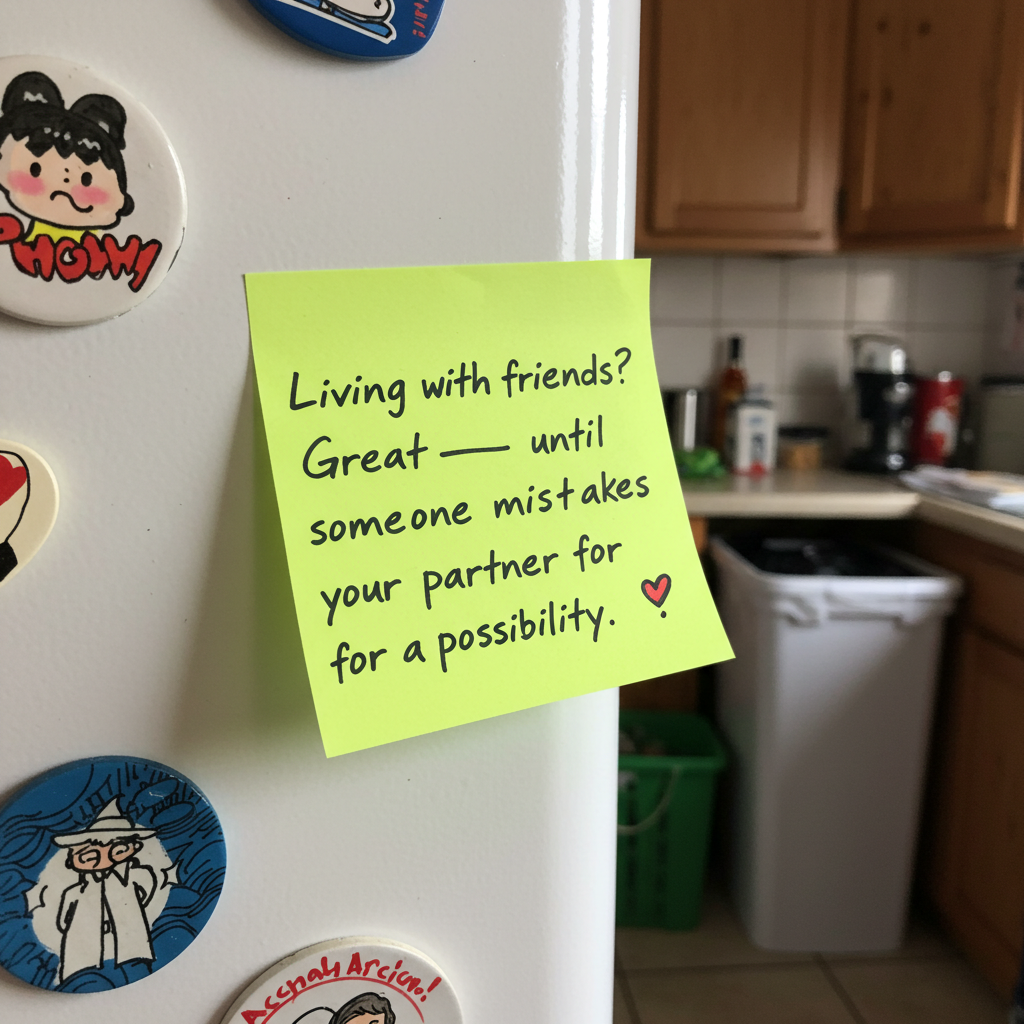
Living with friends can work—until personal boundaries blur. Jake may have mistaken proximity for opportunity, but Sarah’s rejection made things clear: this wasn’t mutual. It was a line-crossing.
Jake’s insistence that Ray was “overreacting” only added fuel to the fire. Minimizing the impact of your own actions is a classic red flag in conflict.
A real friend would’ve apologized, distanced himself, and respected Ray’s decision. Instead, Jake doubled down and tried to turn others against him.
Final Verdict: Not the Villain
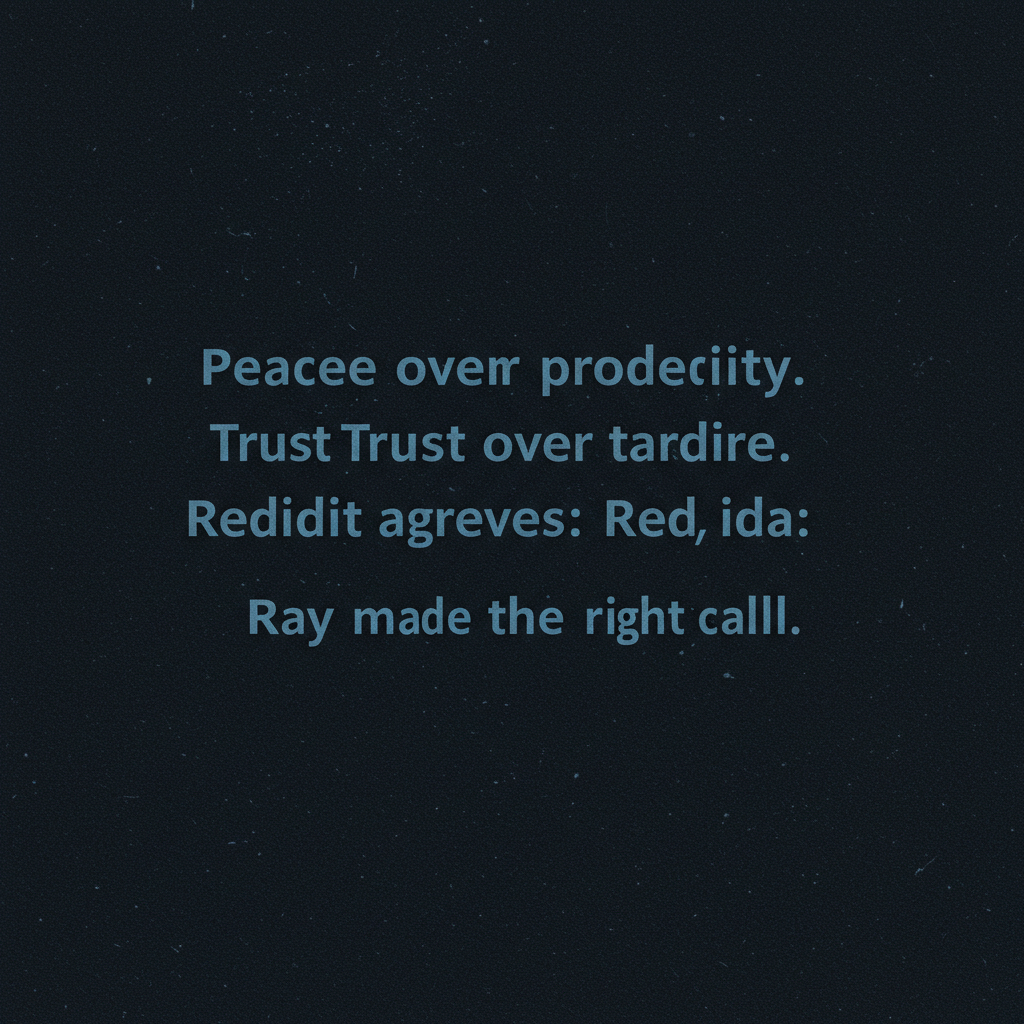
Ray isn’t the villain. He’s the victim of a quiet betrayal—and he responded with composure and clarity.
In relationships, protecting your peace sometimes means letting go of people who don’t respect it.
